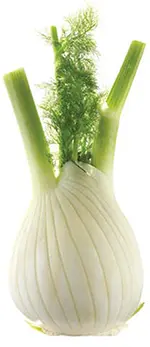
Discovering the Origins
Fennel, a member of the parsley and carrot family, is native to the Mediterranean and valued for its aromatic and flavorful qualities. All parts of this herb, particularly the white bulb and green fronds with an anise-like taste, are edible.
Historical Background and Lore
Fennel’s history as a medicinal and culinary herb dates back to ancient Greece, where athletes consumed its seeds. The Romans recognized its medicinal benefits, especially for eye ailments. Saint Hildegard of Bingen in the twelfth century also acknowledged fennel’s eye-healing properties.
Healing Uses
Fennel tea effectively treats dizziness, coughs, and headaches, and serves as an expectorant. It aids digestion, relieves abdominal discomfort, and boosts milk production in nursing mothers. Chewing fennel seeds freshens breath, and its essential oil is particularly beneficial during menstruation. Crushed fennel seeds can also be used as a natural flea repellent for animals.
Magical Uses
Fennel is used in incense for space purification and curse prevention. When combined with Saint John’s wort over doorways, it wards off evil spirits. Fennel in sachets removes negativity, and its essential oil is employed in protection spells, love spells, and fertility rituals, believed to enhance sexual energy and fertility.
Personal and Spiritual Growth
Fennel symbolizes strength, courage, and protection, especially in dangerous situations. It fosters improved relationships, helps establish boundaries, and builds trust. Its essential oil is ideal for grounding in meditation and other spiritual activities.
